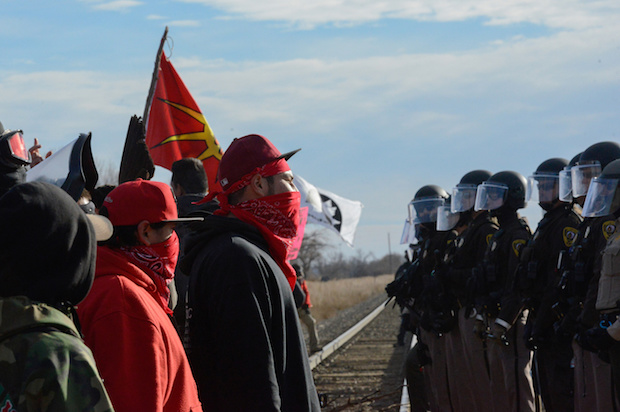On March 7, a U.S. judge ruled against the Cheyenne River Sioux Tribe’s request to halt construction of the Dakota Access Pipeline. As the project continues, native tribes and water protectors are doing everything they can to prevent it.
In a press release following the ruling, Chase Iron Eyes of the Lakota Peoples Law Project said, “Once again, the federal government and the army are treating the original inhabitants of this land as though we are less than human, as though our lives and lands are something to be ignored and discarded in the never-ending quest for profit.”
While the ruling may have delivered another blow to their legal battles, the tribes insist the fight for the sanctity of their land and water will live on. However, outside the courtrooms, those who oppose the project are hoping to pressure their cities to divest from major banks that have helped fund the pipeline by giving loans to the developers.
On Feb. 7, the Seattle City Council voted to not renew its contract with banking giant Wells Fargo. Their reasons for divesting include their funding of the pipeline, as well as their recent scandal involving the creation of millions of phony accounts. As a result, Seattle will be pulling away more than $3 billion annually.
Shortly afterwards, the City Council in Davis, California also voted to divest from Wells Fargo. Their decision will remove roughly $124 million in Wells Fargo accounts.
Among the myriad of concerns, environmental risks are a top priority. Energy Transfer Partners — the parent company of Dakota Access — claims to be “committed to public safety and the protection of the environment.” However, the company recently merged with Sunoco Logistics, who happen to lead the charts of crude oil spills in the U.S.
The concerns over the environment are certainly legitimate. On Dec. 5, just hours from where the Dakota Access Pipeline will be located, a separate pipeline leaked 176,000 gallons of crude oil into a creek. A leaking natural gas pipeline was also discovered in Cook Inlet, off the coast of Alaska. It was determined to be a hazard to the environment, as well as public safety.
According to court documents, Dakota Access said the project “will be complete and ready to flow oil” between March 6 and April 1. The fight to oppose the pipeline is long from over, however. On March 10, native nations and water protectors from around the nation will gather near the Capitol building in Washington D.C. and march to the Environmental Protection Agency.


